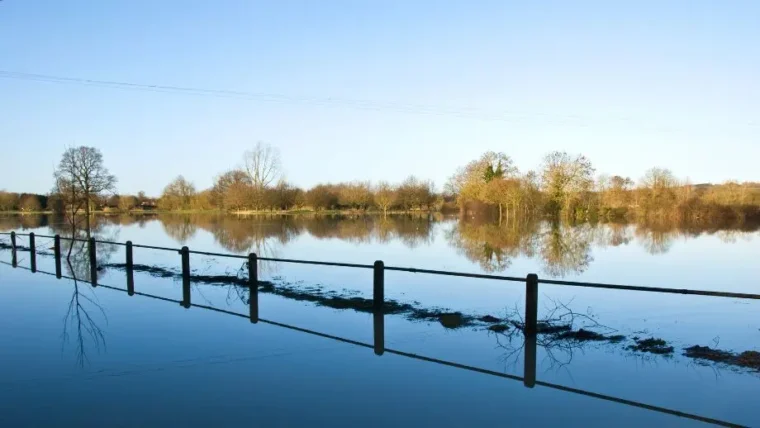Fortnightly Bulletin – 9th September 2024
10 September 2024

Guidance
Monitoring stack emissions: low risk MCPs and specified generators
The Environment Agency (EA) has published guidance on how to monitor emissions from low risk Medium Combustion Plants (MCPs) and Specified Generators (SGs). This document was previously known as Technical Guidance Note (TGN) M5.
The new guidance provides a standardised approach to monitoring of stack gas emissions from low risk plants regulated under the following:
- Medium Combustion Plant Directive (MCPD) 2015/2193/EU Directive on the limitation of certain pollutants into the air from medium combustion plant.
- Specified Generators Regulation (SGRs) Environmental Permitting Regulations (EPR) 2018 Schedule 25B 2(1) – Specified Generators.
This guidance applies to operators of the following:
- Low risk MCPs and SGs with standard rules permits.
- MCPs and SGs which are not low risk but have a condition in their permit that says they must use this guidance when monitoring compliance with emissions limits.
The EA recommend that portable monitoring systems meet the requirements of the Monitoring Certification Scheme (MCERTS) certification for emissions monitoring systems.
Until the 1st of January 2025, you may continue to use monitoring systems which have been assessed against the requirements of EN50379-2 ‘Specification from portable electrical apparatus designed to measure combustion flue gas parameters of heating appliances – Part 2: Performance requirements for apparatus used in statutory inspections and assessment’. The assessment must be carried out by an organisation accredited for these performance requirements.
From the 1st of January 2025, all portable analysers must have MCERTS certification with a certified range of more than 6.5 times the emission limit value (ELV). Sample probes that are exposed to gases at high temperatures (for example, more than 250oC), the probes must be made of temperature resistant material.
Source: Gov.UK
For the full guidance, click here
MCERTS: standards for environmental data acquisition and handling systems
The EA set up its Monitoring Certification Scheme (MCERTS) to provide a framework of standards which can be used to monitor things that affect the environment.
This guidance describes the performance standards, test procedures and general requirements for manufacturers and developers of environmental data acquisition and handling systems.
The EA updated the guidance on the 28th of August 2024.
Source: Gov.UK
For the full guidance, click here
Minimum requirements for self-monitoring of flow: MCERTS performance standard
The EA has updated the MCERTS standard which applies to holders of environmental permits who must monitor liquid flow from their facility (sewage or trade effluent). The changes made include the following:
- Point 2.4 updated to clarify the requirements for surveillance.
- Section 3 updated to clarify how to meet flow monitoring requirements, including adding a new point 3.1.5.
- Addition of a new point 3.2.5 on product certification for new or replacement flowmeters.
Source: Gov.UK
For the full guidance, click here
Disposing of trees or plants affected by disease or pests: RPS 71
This Regulatory Position Statement (RPS) applies to operators which have been issued with a Plant Health Notice from the Animal and Plant Health Agency or the Forestry Commission (or both) that requires you to burn trees or plants and any associated packaging, to eradicate diseases and pests.
The Environment Agency (EA) updated this RPS guidance document on 29th August 2024 and will review the RPS by 1st May 2027.
This RPS does not change your legal requirements to either have an environmental permit for a waste operation or register and comply with a D6 waste exemption: disposal by incineration or D7 waste exemption: burning waste in the open when you burn trees or plants and any associated packaging, to eradicate diseases and pests as instructed by and under a Plant Health Notice.
This RPS relates to activities that the EA considers are potentially suitable to be exempt under the Environmental Permitting (England and Wales) Regulations 2016.
Source: Gov.UK
Storing mixed fuel from misfuelled vehicles: RPS 9
This RPS has been updated to include the condition for sites storing mixed fuel must apply for an environmental permit by the 1st of October 2024. The RPS has been updated to the new RPS template and the title changed to storage only.
This RPS will be withdrawn on the 1st of October 2025.
Source: Gov.UK
For the full guidance, click here
Storing and compacting of waste coffee grounds: RPS 306
This RPS applies to operators who store and compact waste coffee grounds to make a briquette for burning as a fuel.
This RPS replaces the Low Risk Waste Position (LRWP) ‘Storing and compacting waste coffee grounds to produce a briquette: LRWP 45’.
This RPS does not change your legal requirement to have an environmental permit for a waste operation. However, the EA will not normally take enforcement action against you if you do not comply with this legal requirement provided that your activity meets the description set out in this RPS and you comply with the condition set out in the RPS.
Your activity must not cause (or be likely to cause) pollution of the environment or harm to human health.
You must not:
- Cause a risk to water, air, soil, plants or animal
- Cause a nuisance through noise or odours
- Adversely affect the countryside or places of special interest.
This RPS relates to activities which the EA considers are potentially suitable to be exempt under the Environmental Permitting (England and Wales) Regulations 2016.
The EA will review this RPS by the 1st of May 2027.
Source: Gov.UK
For the full guidance, click here
Articles of Interest
Batteries warning after second fire at waste plant
People are being urged to dispose of batteries carefully after a second fire at a household recycling facility. A fire was reported to occur at a recycling facility in Bridlington, in the early hours of the 30th of August 2024. The likely cause of the fire is a spark from discarded batteries.
A spokesperson from Yorkshire Council said “incidents were becoming more common due to people putting batteries and disposable e-cigarettes in bins.”
The latest fire caused minor damage to the recycling facility. Firefighters managed to get the fire under control quickly and no one was hurt.
A fire at the site last year in August led to the facility being closed to the public for two days.
The council urge people to dispose of batteries safely, either using special containers at household waste recycling sites, or at dop-off points in supermarkets and shops.
Source: BBC
For the full article, click here
Enforcement undertakings
An EU was accepted from a company which caused a slurry pollution at Cat Hill Clough and Rons Cliff Dike, Sheffield on the 25th of April 2022 and on the 24th of January 2023. The offence was operating within or other than in accordance with an environmental permit (water discharge activity) – Regulation 38(1). This was a reactive offer.
The actions the offeror has taken or will take include the following:
- Install an overload sensor to the slurry store
- Attach an additional pipe to the slurry store
- Pressure wash the slurry store before fitting a liner
- Line the weeping wall slurry store with 3mm geomembrane lining
- Break and remove concrete on two feed yards
- Reinstate storm and land drains
- Install a new rainwater collection tank and rainwater filtration and diverter
- Carry out environmental improvement works, including woodland creation, pond restoration, wildlife habitat creation and planting new hedgerow
- Cover the Environment Agency’s costs.
The EU was accepted by the EA on the 9th of July 2024.
An EU was accepted from an automotive company relating to the discharge of ferric chloride and hydrochloric acid into the Emma’s Dyke, Witney between the 24th and 27th of August 2017. The offence was operating without or other than an in accordance with an environmental permit (water discharge activity) – Regulation 38)1).
This was a reactive offer and the actions the offeror has taken or will take include the following:
- Improve its shut down and start-up checklist
- Install a penstock valve to drain in the yard
- Install a high-level alarm and ‘call-out’ rota
- Pay third parties for costs incurred as a result of the incident
- Cover the Environment Agency’s costs.
The company will also contribute £10,000 to The Woodland Trust.
This EU was accepted by the EA on the 2nd of November 2023.
Source: Gov.UK
For the full article, click here
Events
Environmental Permitting Training Course
Delivered in-house at customer sites or remotely over half a day.
Environmental Monitoring Solutions (EMS) provide training on sites that have any type of environmental permit.
The course highlights include the following:
- Understand your permit(s)
- Know what your permit requires of you
- Tailor the course
- This course will look at your specific permit(s)
- Delivered by a consultant
- All our trainer have experience in environmental permitting.
The course topics are:
- Basics of environmental permitting
- Environmental permit requirements
- How to meet your environmental permit requirements.
Source: em-solutions.co.uk








